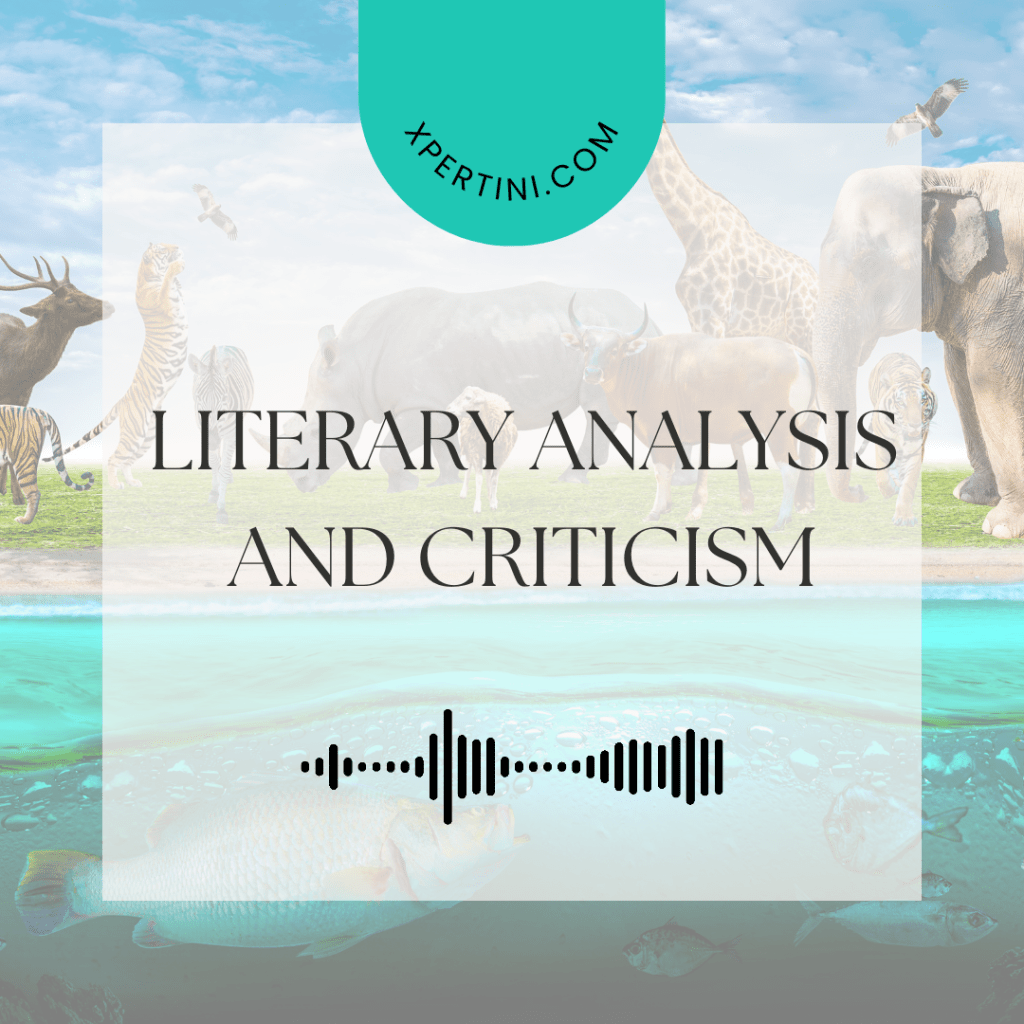Literary Analysis and Criticism
Course Summary
This comprehensive literary analysis and criticism course offers a profound exploration of the core elements shaping the landscape of literature. Delving into the fundamental aspects of plot, character, theme, setting, tone, and point of view, participants gain an understanding of the fabric that constructs compelling narratives.
The journey commences with an in-depth examination of the essence of plot, unfolding the narrative threads that bind the sequence of events together. Moving beyond surface-level traits, the course navigates the domain of characters, exploring their motivations, conflicts, and transformative roles. Themes emerge as unifying threads, weaving disparate elements into a cohesive whole, providing depth and resonance to literary works.
Setting and tone, as atmospheric elements, paint the backdrop against which narratives unfold. The significance of point of view becomes apparent as participants explore various narrative lenses, deepening their connection with characters and events. Practical application becomes paramount as theoretical understanding transforms into critical evaluation through exercises dissecting textual components.
The course advances into the impact of cultural and societal factors on literary interpretation, offering case studies that illuminate the profound influences shaping literature. Participants engage in discussions on contemporary issues in literary criticism, navigating current debates and trends, thus participating actively in the landscape of literary analysis.
The exploration extends to the works of prominent literary critics, evaluating diverse critical perspectives and gaining insights from influential figures in the field. Subsequently, the course provides practical guidance on writing effective literary critiques, encouraging peer review sessions for constructive feedback.
Analyzing real-world examples with diverse literary theories serves as a bridge between theory and application, demonstrating the relevance and applicability of theoretical frameworks in different contexts. The course culminates in an exploration of potential career paths in literary analysis and criticism, offering guidance on building a successful career in the field.
Throughout this journey, participants develop critical thinking skills, enriching their interpretative capacities and establishing a solid foundation for a future in literary analysis. This course serves as a gateway to a world where literature transforms from a narrative into a profound exploration of the human experience.
Course Overview
This course provides a comprehensive exploration of the principles and practices of literary analysis and criticism. Participants will delve into the art of interpreting literature, understanding critical perspectives, and developing the skills necessary for insightful literary analysis. Whether aspiring to a career in literature or seeking to enhance personal knowledge, this course offers a solid foundation in the analysis and appreciation of literary works.
Course Objectives
- Develop critical thinking skills in the analysis of literary texts.
- Understand and apply various literary theories and approaches.
- Enhance writing skills through the articulation of well-founded literary arguments.
- Explore the historical evolution of literary criticism.
- Engage in discussions on contemporary issues in literature.
- Foster an appreciation for diverse literary genres and styles.
- Analyze the impact of cultural and societal contexts on literary interpretation.
- Evaluate and critique the work of prominent literary critics.
- Apply theoretical frameworks to real-world examples.
- Explore potential career paths in the field of literary analysis and criticism.
Course Outcomes
- Demonstrate the ability to activate prior knowledge in literary analysis by identifying key elements in a given text.
- Applying diverse literary theories and critical perspectives to analyze different genres.
- Apply analytical skills to interpret and critique literature within its historical and cultural context.
- Integrate various literary theories to form well-rounded and comprehensive analyses of literary works.
- Articulate the principles of literary criticism and demonstrate how these principles guide their analyses.
- Engage in regular practice through assignments and discussions to refine their analytical skills.
- Actively seek and provide constructive feedback on literary analyses, fostering a collaborative learning environment.
- Reflect on their evolving understanding of literary criticism and its application to diverse texts.
- Proficient in assessing the effectiveness of different critical approaches and adapting them accordingly.
- Acquired skills and knowledge to real-world situations, showcasing the practical applications of literary analysis.
Course Audience
- Aspiring literature professionals and academics
- Students pursuing degrees in literature, English, or related fields
- Educators seeking to enhance their understanding of literary analysis
- Individuals with a passion for literature and critical thinking

